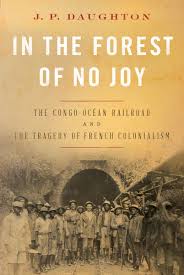What Requiring Blockbusters Does To The Film Industry
May 1, 2022
Where did the mid-budget film go? With A24’s critically lauded film “Everything Everywhere All at Once” only earning a $4 million return on its budget, it’s clear to see that even though great films come out, people are more hesitant than ever to see them.
With the deluge of franchise material being dumped tastelessly into the entertainment trough for the disillusioned masses, it’s clear to see that an oversaturated market is primed for eventual collapse.
With the Netflix crash looming on the horizon, it seems that corporations in the film industry should be contemplating how they even got into this mess, however incapable of self-reflection they continue to be.
Every film that sees release MUST be a blockbuster, lest film production houses empty their coffers and give up making films entirely.
The studios have decided that the mid-budget films of yesteryear are pointless to make, even though they make up the basis for what we even consider auteur filmmaking in the modern age. This interplay with the public has left such a void in the audience’s attention spans that many decried the recently released film “The Northman” for being boring. A film in which a shirtless viking berserker scales a palisade wall with an ax, showing strength akin to the heroes of old Norse myth, is now boring.
Netflix has shown that the content machine is breaking down. I couldn’t tell you if people want good movies, but I’ve heard many anecdotes on the breadth of Netflix’s original catalog still lacking anything worth meaningfully devoting your time to.
Now that streaming platforms are carving entertainment into stricter fiefdoms and prestige T.V. has more or less replaced the modern idea of the mid-budget film, good films are struggling to compete.
When everything demands your attention, what do you even devote your time to? Mid-budget cinema used to be a testament that studios weren’t afraid to take risks. Most of our contemporary directors of note started out making either a low-to-mid-budget film that jump-started their careers. With less distinct voices in the film industry, content is forwarded above craft.
Just like your average chicken nugget, media is slowly becoming an indistinct slurry that you slowly lose touch with as new films and television whiz by you with bullet-like speed. Trying to separate and keep touch with what is actually coming out is becoming harder, and what is good gets quickly lost by the sheer weight of Marvel Studios’ catalog for that month.
Marvel Studios wants every one of their movies to break the bank, which peaked with “Avengers: Endgame,” but where do they even go from there? With capitalism necessitating a continually increasing high gross return on investment, there will become a time when Marvel films and the like become simply too expensive to make.
With no distinct talent given the chance to rise in their place, who’ll be the new faces of cinema in 20 to 30 years?



























